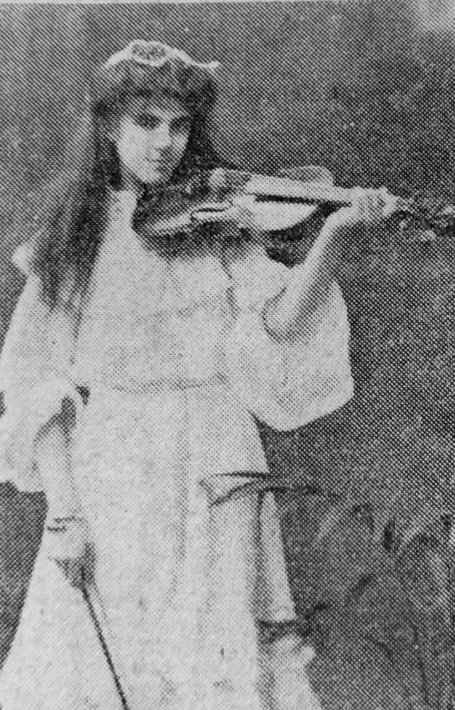Mexborough & Swinton Times, October 19, 1907
Miss Dorothy Spooner.

At the age of 15, musical honours crowd thick and fast upon Miss Dorothy Spooner.
The scene of her latest triumph in the Divine art, is Leeds, where last Saturday she was presented with a silver medal, Sir Frederick Bridges prize, by the celebrated Westminster Abbey organist, himself, the prize being for sight-reading.
To this prize Sir Frederick added one of his own, a birthday book, full of Shakespearian quotations, peculiarly adapted to music and to great musicians. Although this particular musician deprecated its value, there is no down that the book, in its way, is one which might will be treasured lovingly, as a proof of talent recognised by a man of talent. But the incident only serves to draw attention to a career which, though short, has to be crowded with music and musical honours.
Miss Dorothy Spooner is the daughter ef the Rev. E. P. Spooner, of Bolton Vicarage, a daughter whose brilliant talents for the musical instrument the Vicar :and the lady are justly proud.
The remarks of Sir Frederick are of some interest. It was when Miss Spooner was called up to receive her sight-reading prize that Sir Frederick took occasion to make a few remarks appropriate. to that particular incident. He knew well, he said, what a serious drawback it was when the sight singing was not at all on a level with their musical taste and instruments. Learning music was not merely learning to play various instruments, but they should learn to read with an eloquent eye, and so add to the progress of the great Divine art. He had offered, continued Sir Frederick, a small prize for the best sight reader. The winner was Miss Dorothy Spooner six who, in other directions, as they knew, had distinguished herself. He would not say that it was a very valuable prize; it was a copy of a book he compiled himself, a birthday of musical quotations from Shakespeare. They were for every day in the year, and he was glad that the year contained no more than 365 days, or he was very much afraid that both Shakespeare and himself would have run dry. (Laughter.)
Some of the quotations were peculiarly appropriate. One was very applicable to a musician whom he hoped -Co hear in. the course of the afternoon Paderewski, who had a beautiful head of hair. The quotation referred to one being so musical that even the nightingale might wish to nest in his hair. (Laughter.)
We have before us a list Miss Dorothy Spooner’s achievements since she took her first pianoforte in May of 1899, down to July of this der, when she won the prize already referred to. It is an extraordinary list, a unique list, certainly a list which very few of the great musicians of today could comfortably pack away in the 7 years of their infant life.
If we may -use the term respectfully and gallantly Miss Spooner took to music as a duck takes to water, she revelled in it.. It was part of her existence. She is wonderfully clever upon the piano-forte and violin alike, and to these branches of musical knowledge she adds a third, composition. Should a catchy bar flash through her inventive brain, down it goes on paper, and the nimble Pen keeps pace with the strains of music floating in her imagination, until all has been reduced to minims and crotchets and quavers on cold, white paper and then the song gradually dies away, and Miss “Dolly ” Spooner has added another to her healthy growing list of music, compositions.